An Analysis of the Internet of Things: Pros and Cons for Smart Cities
VerifiedAdded on 2022/09/07
|5
|719
|21
Homework Assignment
AI Summary
This paper provides a comprehensive overview of the Internet of Things (IoT) and its implications for smart cities. The introduction defines IoT as the connection of everyday objects with sensors to enable communication and data exchange. The paper then delves into the advantages of IoT in smart cities, such as enhanced communication, automation, better information management, and cost savings. However, it also acknowledges the disadvantages, including complexity, compatibility, security, and privacy issues. The discussion highlights the over-dependency on technology, potential job losses due to automation, and the risk of system failures. The conclusion emphasizes the importance of analyzing both the benefits and challenges of IoT to prepare for future outcomes. The paper references various sources to support its arguments.
1 out of 5
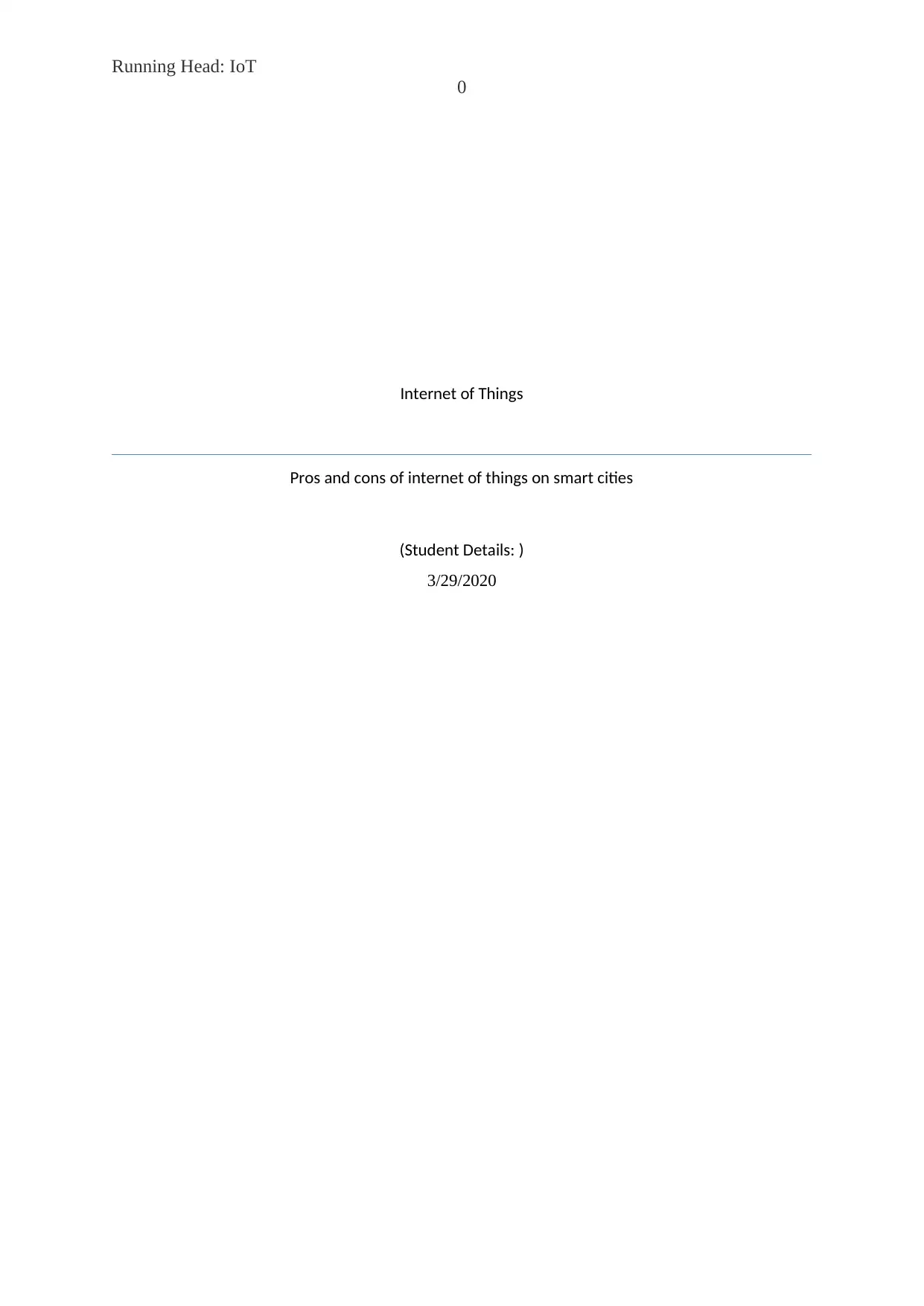
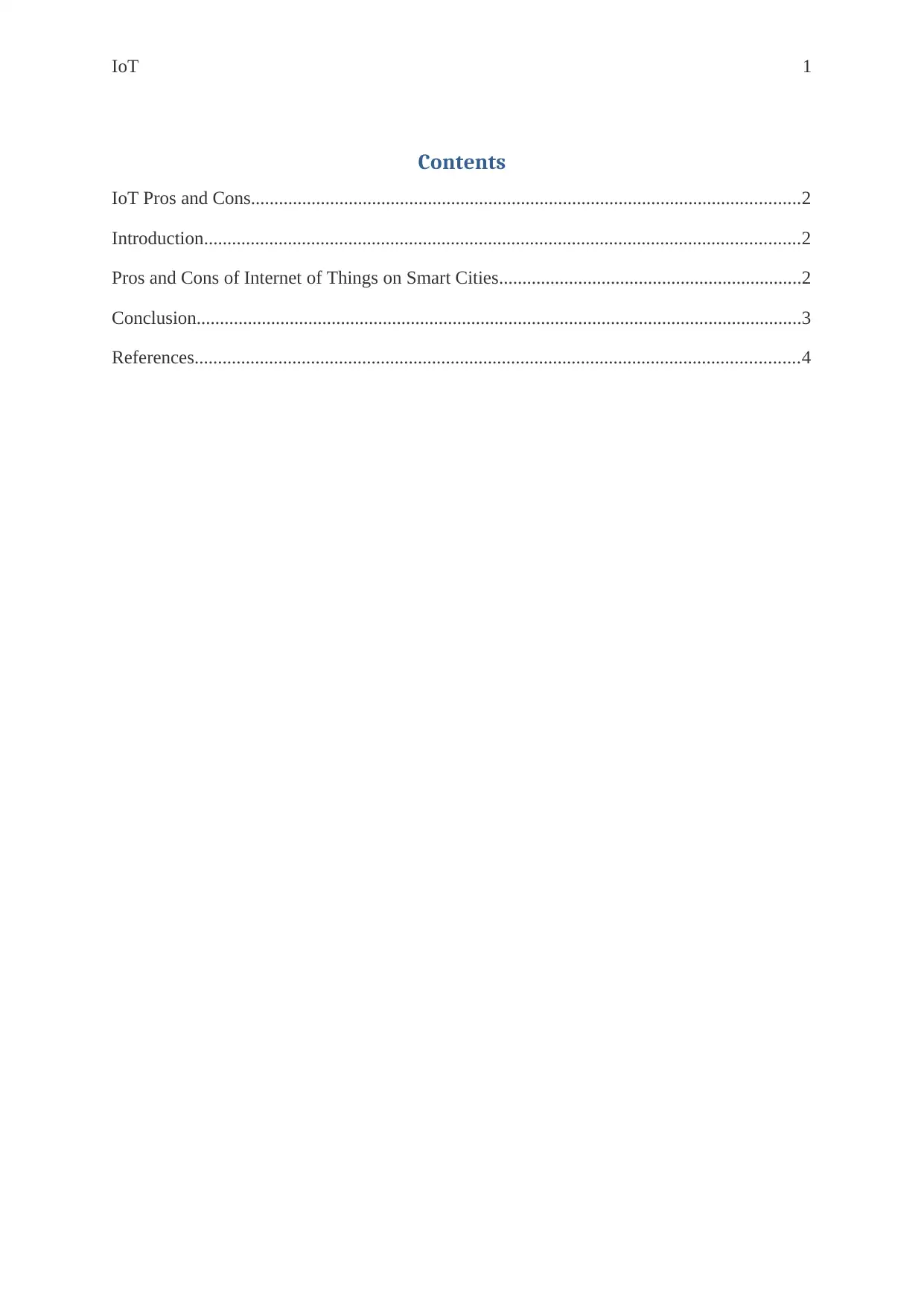
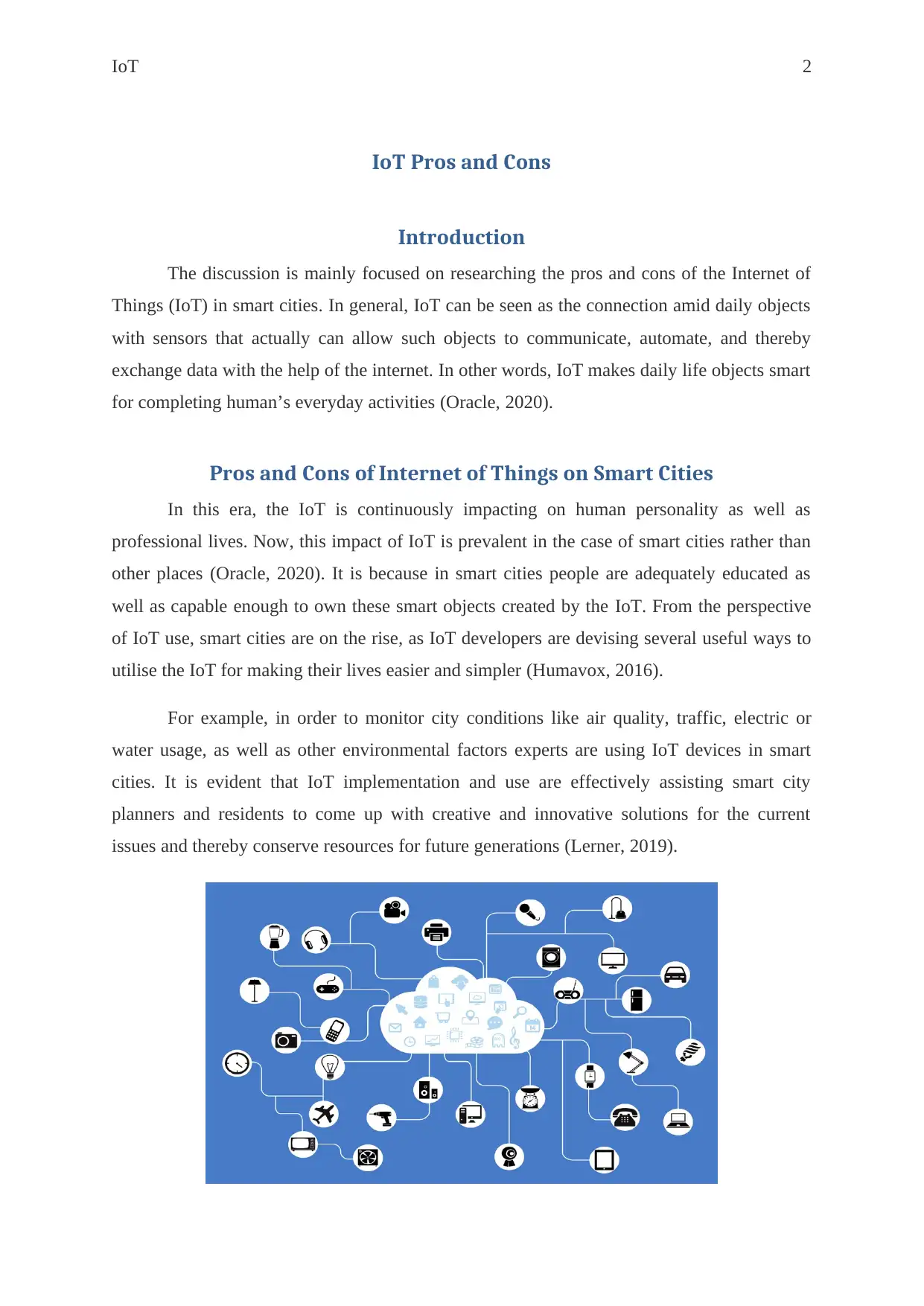

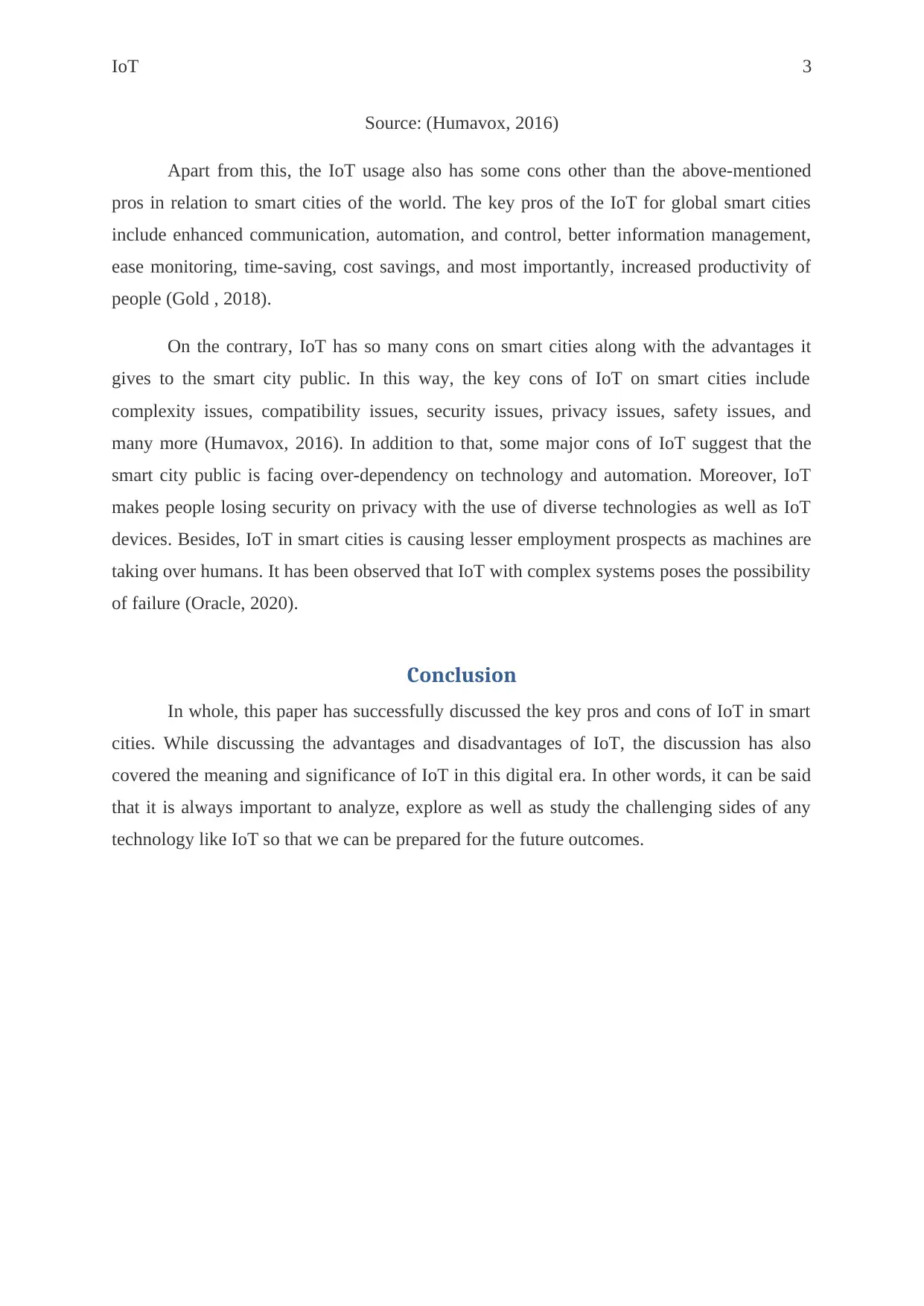
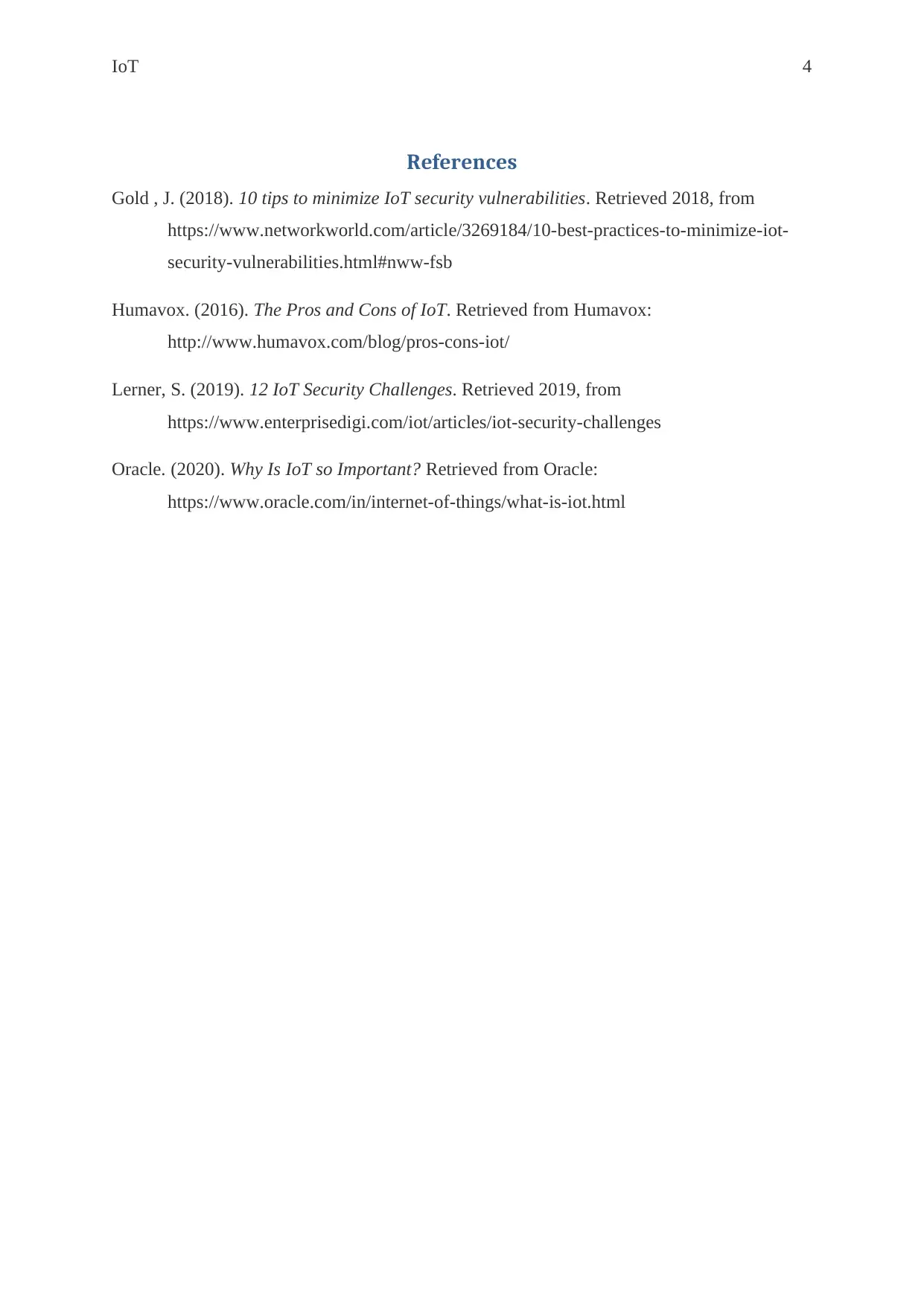





![[object Object]](/_next/static/media/star-bottom.7253800d.svg)